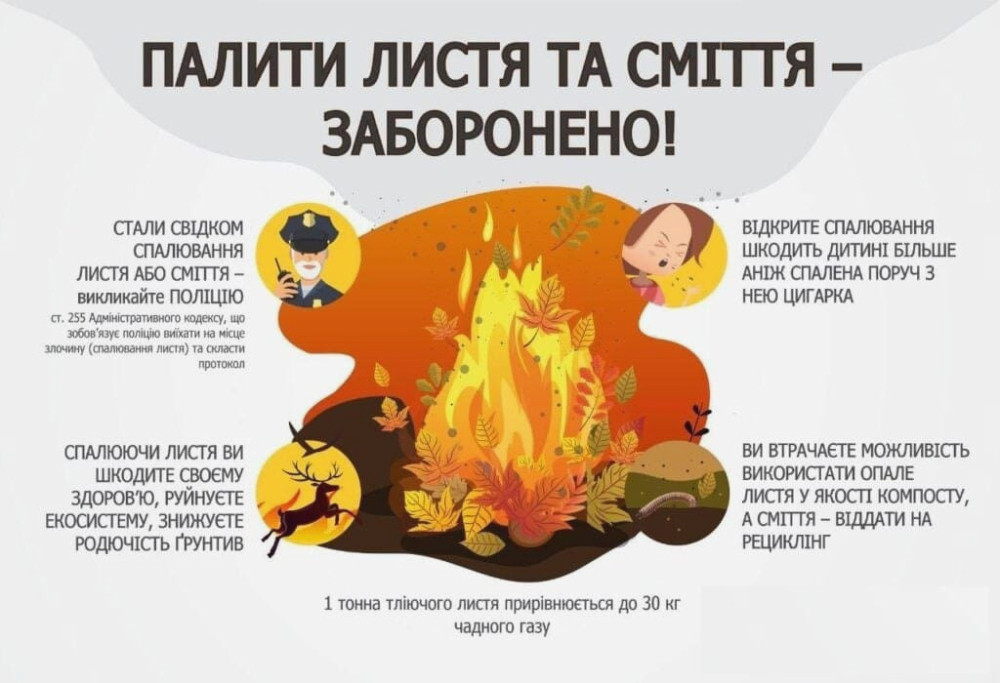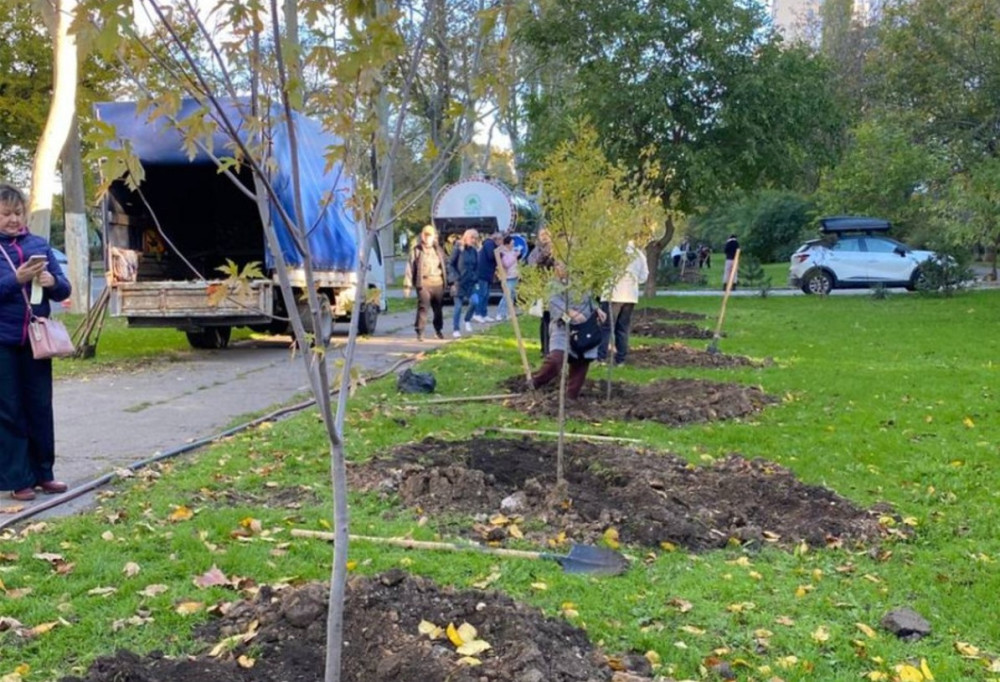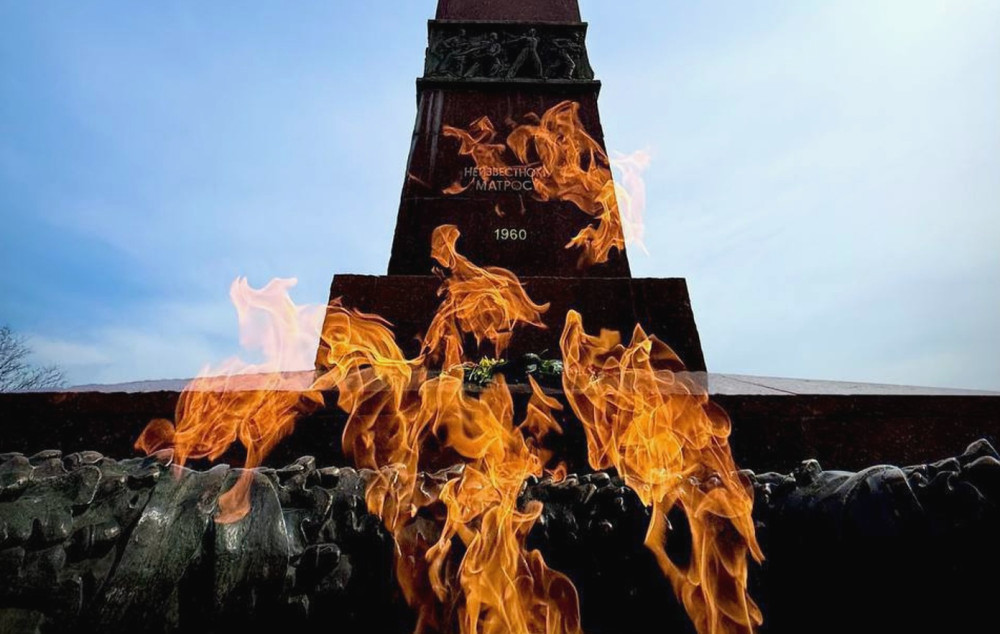Prohibition of Burning Vegetation: Protecting Nature and Health
Every autumn and spring, instances of burning plant waste, including dry leaves and branches, are reported in Ukraine.
The Odessa city authorities once again remind citizens that burning dry vegetation is strictly prohibited. Violators may face administrative fines and, in certain cases, criminal liability. Such actions harm public health, the environment, and pose risks to life.
It is also prohibited to dispose of leaves and cut branches in trash containers or leave them next to them.
There is a common myth that burning vegetation improves crop yields. In reality, this is not true. Firstly, it destroys the microflora that is crucial for biological processes. The recovery of fertile soil under these conditions can take 5 to 6 years.
Secondly, harmful substances are released into the air during burning, which can affect respiratory health.
Thirdly, burning grass does NOT warm the soil, does NOT enrich it with ash, and does NOT promote the growth of new grass.
Moreover, a small fire can escalate into a large wildfire, causing destruction and increasing the workload for emergency services.
Instead, it is better to compost leaves. This is not only a civilized way to handle organic waste but also an economical method to produce excellent fertilizer.








